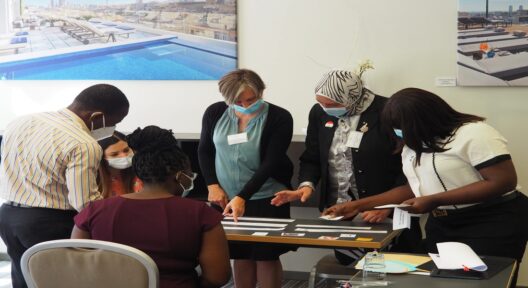IHR Summer School Revision
Revision of the Summer School on International Health Regulations (IHR)

Context
In the globalised world of the 21st century, public health emergencies are of international concern, as health threats spread easily and rapidly across borders and continents. To ensure the world is prepared and able to respond to potential threats, the International Health Regulations (IHR) were launched in 2005 as an essential and binding international agreement for the control of infectious diseases and biological cross-border health threats and the management of radiological and chemical events. All WHO Member States have agreed to build national capacities to prevent, detect, assess, notify and respond to public health events. In 2020, the World Health Assembly again highlighted the critical importance of implementing IHR core capacities to improve countries’ preparedness and response to health emergencies. The RKI, in its role as a WHO Collaborating Centre for Emerging Infections and Biological Threats, supports other countries in doing this. Building on the IHR core capacity training from the first funding phase, the project aims to revise and evaluate the current IHR Summer School concept according to the post-COVID-19 IHR revision. Ultimately, the overarching goal is to reinforce national and regional public health systems by strengthening the skills and knowledge of the IHR Summer School participants in selected IHR core capacities through the exchange of best practices and lessons learned.
Objective
Revising the concept of the RKI’s IHR Summer School.
Thematic priorities
Facts
Activities
-
Research and provision of evidence
Analysing previously conducted IHR training; conducting an online survey with previous participants, with a view to revising the concept and content of IHR training